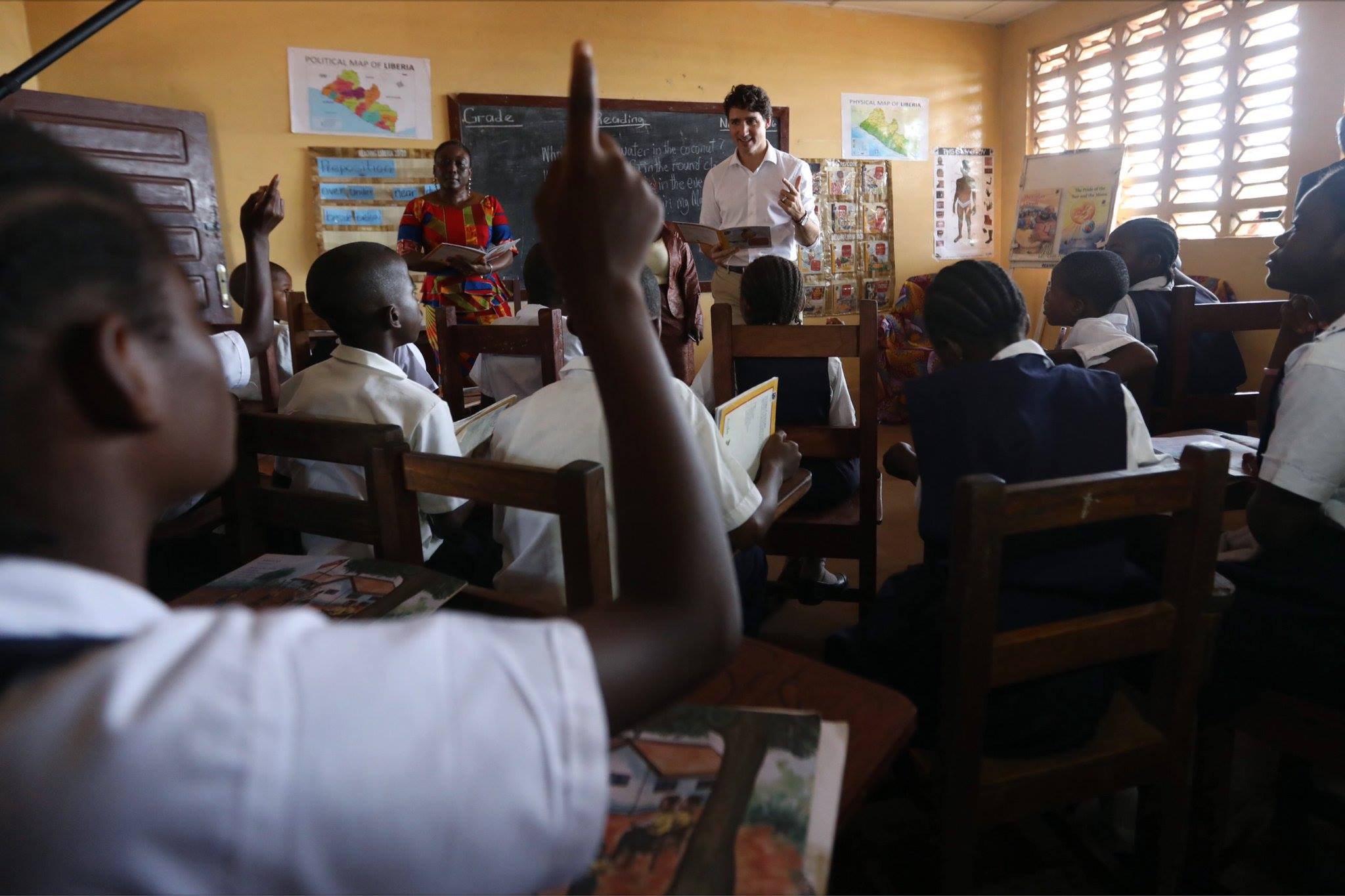
ANTANANARIVO, Madagascar—The Liberal government views the summit of la Francophonie as an opportunity to get the world talking about troubles and solutions, while showcasing Canada’s ideas on how to address them.
“I look forward to building new ties with francophone countries around the world and working closely to tackle the challenges we collectively face,” Prime Minister Justin Trudeau said in a statement last week.
Trudeau is leading the Canadian delegation to this year’s summit of the International Organization of la Francophonie in Antananarivo, Madagascar, which, after a day in Liberia, is the second and final stop on his first visit to Africa since the Liberals came to power.
The international gathering tends to get less attention than some others, but the absence of major players like the United States and China also allows Canada — whose $43 million in annual funding to la Francophonie and its offshoots makes it the second-largest contributor after France — a chance to wield some influence.
It could also be a chance to forge new relationships at a time when the coming accession of Donald Trump to the American presidency is bringing uncertainty and upheaval to the world stage, especially on issues of international trade and efforts to curb greenhouse gas emissions.
Trudeau will be one of several government representatives who will speak at the opening ceremonies Saturday morning, a short address that officials say will mention climate change and the role that women and girls should play in development assistance and support Ontario’s bid to join la Francophonie as an observer.
Trudeau is also expected to talk about human rights, including those of LGBTQ people, even though some of the delegates in the audience represent countries where homosexual activity is still illegal.
Quebec Premier Philippe Couillard, meanwhile, is not closing the door to Saudi Arabia’s bid for observer status at la Francophonie, a decision that must be approved by consensus.
Couillard would not comment Friday on his position, but said he has some reservations, given that Saudi blogger Raif Badawi, whose wife and children live in Sherbrooke, Que., remains imprisoned under the threat of lashings in that country.
Cameron Ahmad, spokesman for Trudeau, said it is unlikely the issue will end up being debated at the summit, because the gathering of ministers of la Francophonie ahead of the summit found Saudi Arabia’s submission was incomplete.
The summit will also give Canada the chance to highlight its international development priorities in a forum where 31 of the 80 members and observer states are from Africa, including countries on the list of possible destinations for Canada’s promised contribution of up to 600 troops to a United Nations peacekeeping mission.
“It is really a place in the world where our efforts and our priorities are really set to make a difference,” International Development Minister Marie-Claude Bibeau said in a recent interview.
One of those priorities is gender equality and the empowerment of women and girls, a message that could get a boost from the fact that Michaelle Jean, the former governor general, is the first female — and the first Canadian — to lead the organization.
Canada is sponsoring a joint resolution with Benin on early and forced marriages, a cause that former prime minister Stephen Harper also took up in his speech to the last summit of la Francophonie in Dakar, Senegal two years ago as part of his signature maternal, child and newborn health initiative.
Trudeau has promised that any funding for women’s health initiatives in developing countries would include abortion services, something the previous Conservative government excluded.
The post-meeting Antananarivo Declaration is expected to include language on security, as many members of la Francophonie are both sources and targets of terrorism and the criminal trafficking of drugs, arms and humans that sustain it.
“Be it in the North, the South, it’s a constant problem and we are in a state of vigilance,” said Jean.
Quebec is putting forward a resolution on fighting and preventing radicalization that leads to violence.
Climate change is also expected to feature prominently in the discussions.
The setting is apt. Madagascar, a country with some of the greatest biodiversity on the planet, has lost the majority of its rainforest to logging and agricultural practices. It is also experiencing recurrent drought in the south that has left 1.2 million people grappling with food insecurity.